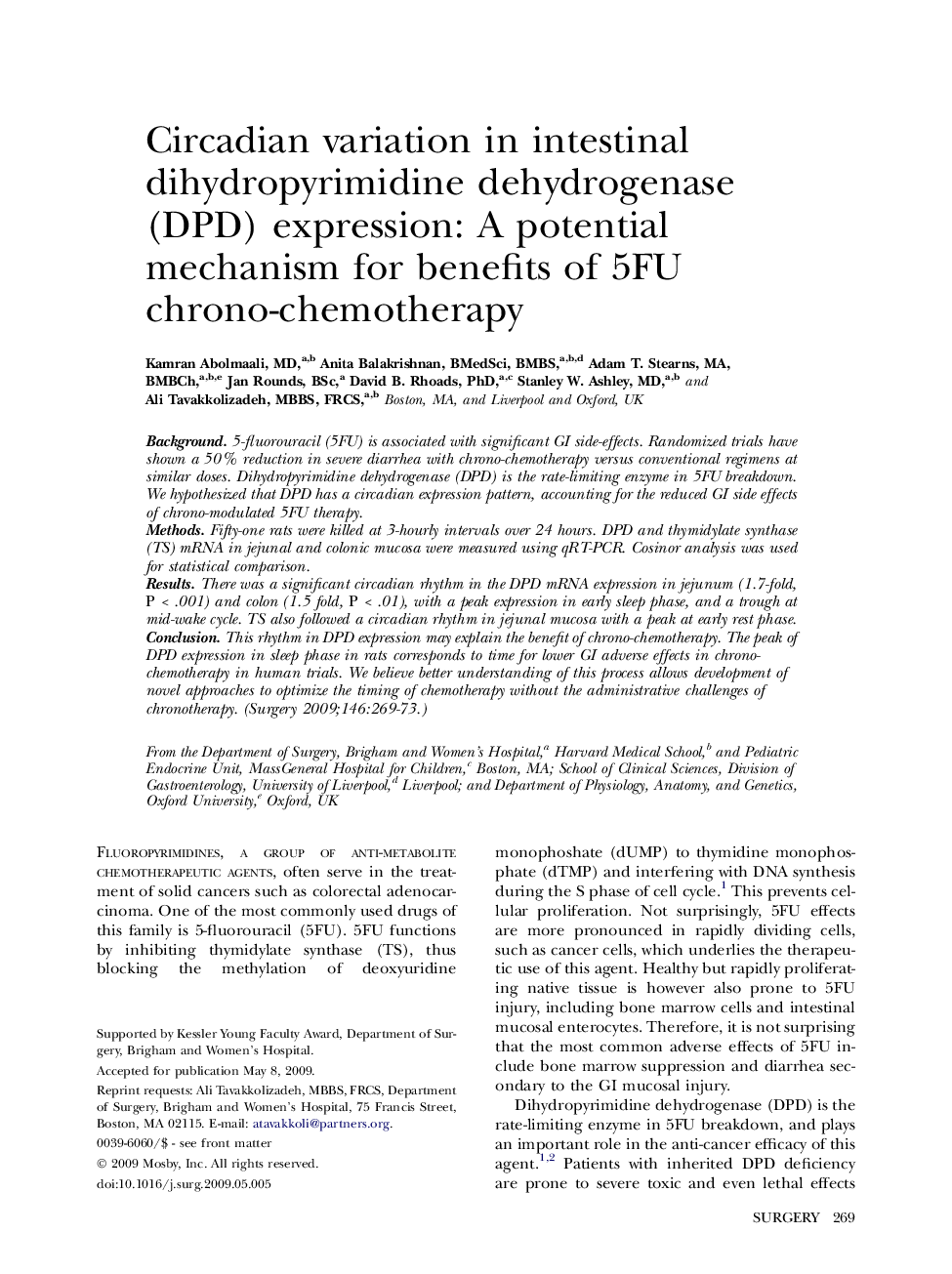| Article ID | Journal | Published Year | Pages | File Type |
|---|---|---|---|---|
| 4309392 | Surgery | 2009 | 5 Pages |
Background5-fluorouracil (5FU) is associated with significant GI side-effects. Randomized trials have shown a 50% reduction in severe diarrhea with chrono-chemotherapy versus conventional regimens at similar doses. Dihydropyrimidine dehydrogenase (DPD) is the rate-limiting enzyme in 5FU breakdown. We hypothesized that DPD has a circadian expression pattern, accounting for the reduced GI side effects of chrono-modulated 5FU therapy.MethodsFifty-one rats were killed at 3-hourly intervals over 24 hours. DPD and thymidylate synthase (TS) mRNA in jejunal and colonic mucosa were measured using qRT-PCR. Cosinor analysis was used for statistical comparison.ResultsThere was a significant circadian rhythm in the DPD mRNA expression in jejunum (1.7-fold, P < .001) and colon (1.5 fold, P < .01), with a peak expression in early sleep phase, and a trough at mid-wake cycle. TS also followed a circadian rhythm in jejunal mucosa with a peak at early rest phase.ConclusionThis rhythm in DPD expression may explain the benefit of chrono-chemotherapy. The peak of DPD expression in sleep phase in rats corresponds to time for lower GI adverse effects in chrono-chemotherapy in human trials. We believe better understanding of this process allows development of novel approaches to optimize the timing of chemotherapy without the administrative challenges of chronotherapy.
